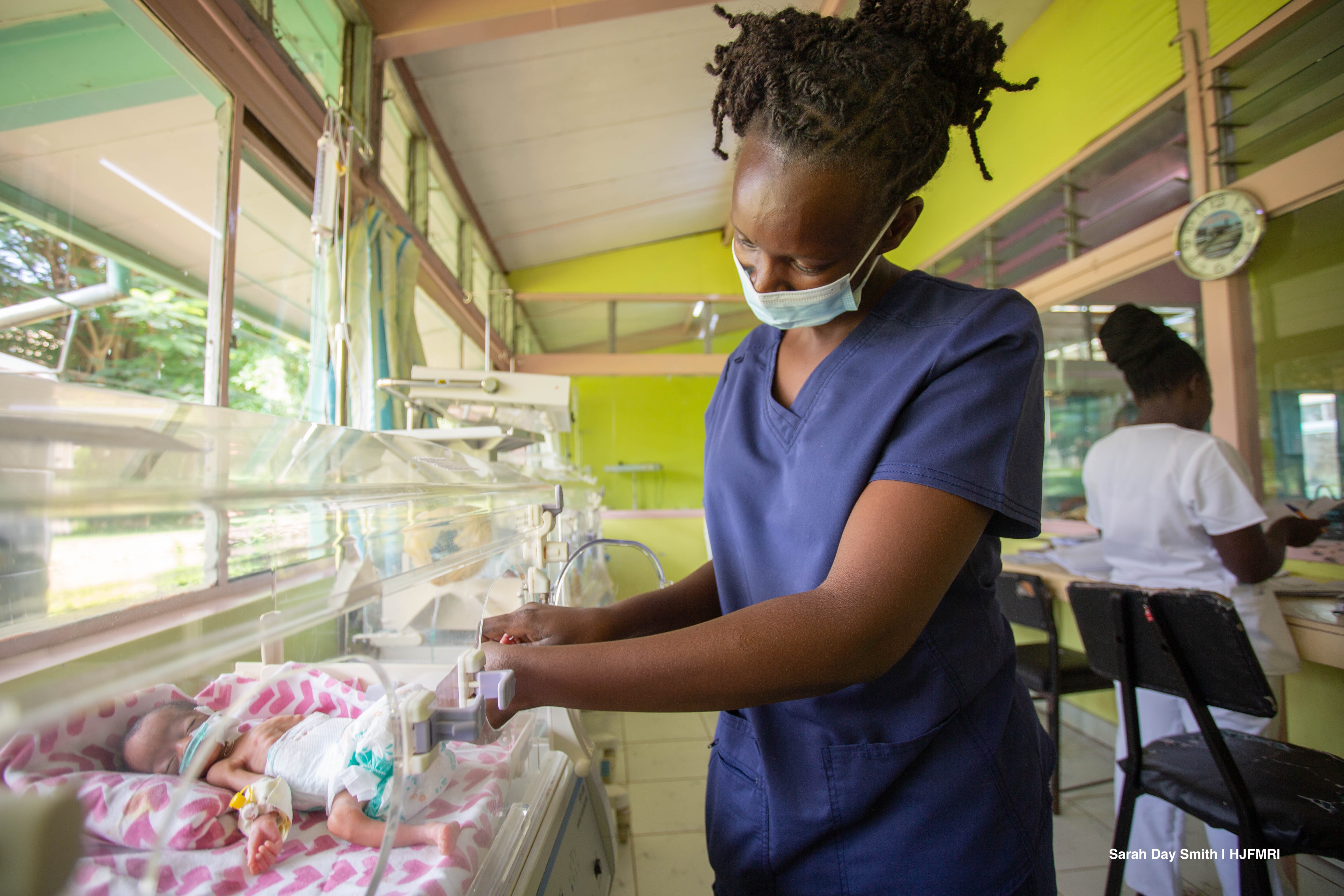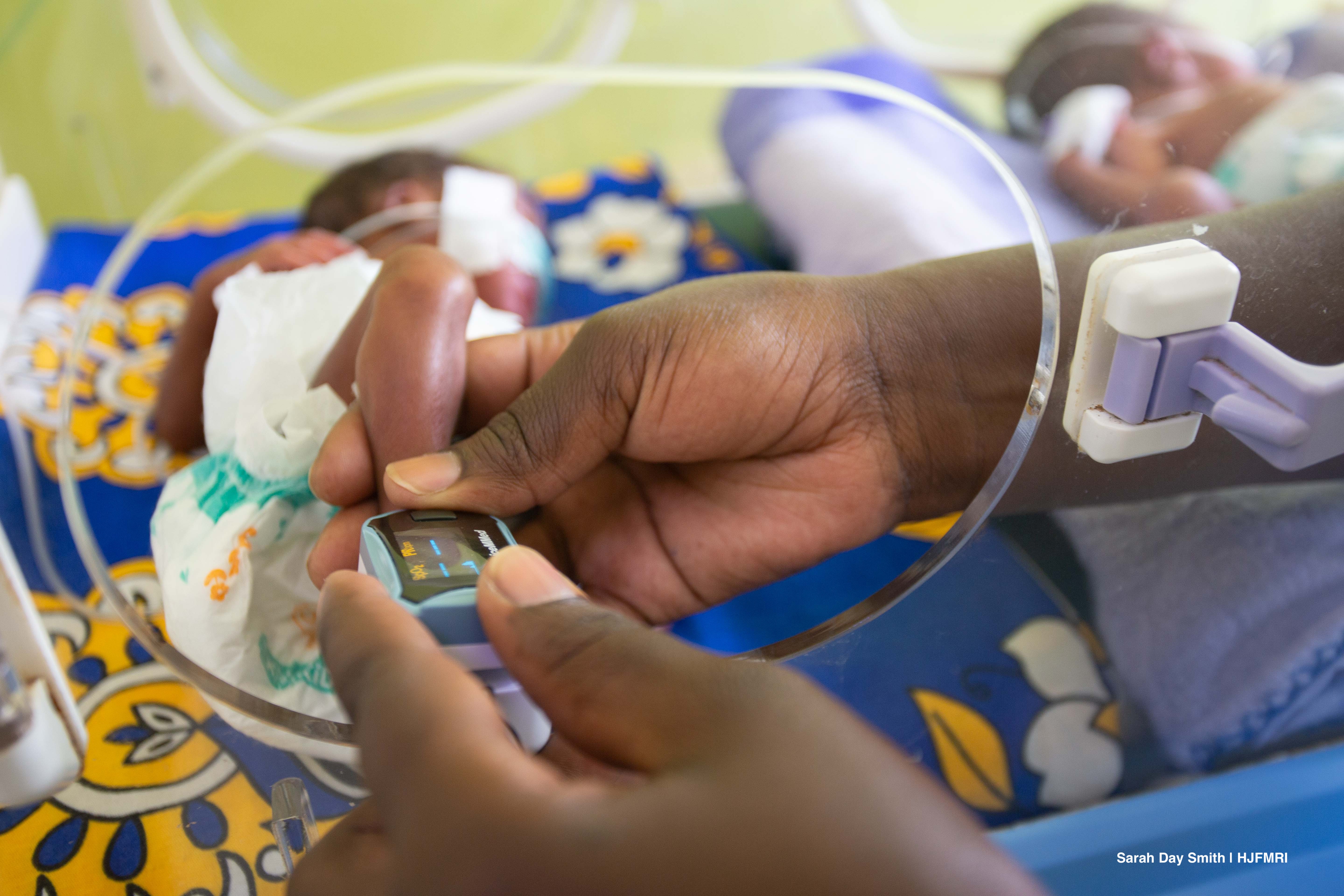 The smallest patients at Siaya County Referral Hospital are cared for in a room awash with color. Acid green paint covers the walls of the newborn unit, illuminated by a bank of windows taking up one entire wall. Inside incubators, tiny neonates, some born weighing only 500 grams, lie on blankets splashed with magenta, cobalt and mango orange. Nurses move efficiently, checking vital signs and adjusting equipment; the seriousness of their duties contrasting with the brightness of the room.
The smallest patients at Siaya County Referral Hospital are cared for in a room awash with color. Acid green paint covers the walls of the newborn unit, illuminated by a bank of windows taking up one entire wall. Inside incubators, tiny neonates, some born weighing only 500 grams, lie on blankets splashed with magenta, cobalt and mango orange. Nurses move efficiently, checking vital signs and adjusting equipment; the seriousness of their duties contrasting with the brightness of the room.
The contrast reflects the bittersweet nature of their jobs, attending both joyous healthy births and those with more tragic outcomes. Infant mortality remains a challenge in Kenya, with premature birth and neonatal complications driving mortality rates. In response, the Child Health and Mortality Prevention Surveillance (CHAMPS) program, with support from the Kenya Medical Research Institute and HJFMRI in Kenya, collects data to better understand preventable causes of infant deaths and implement initiatives tailored to address specific issues through the “data to action” component of the study. HJFMRI supported program management, procurement, and financial management oversight by ensuring efficient utilization of resources.
One of the primary strategies of the CHAMPS data to action program is the comprehensive training of health care workers, encompassing essential skills in maternal and child health, antenatal care, and lifesaving measures for neonatal patients. The CHAMPS data to action team, in collaboration with the Ministry of Health, recently conducted training for neonatal intensive care nurses on antenatal care approaches to improve outcomes for newborns.
“There have been trainings on managing care while the mother is in labor to help prevent birth asphyxia, on how to manage the neonates,” explained Hilda Okinyi, a neonatal nurse at the hospital in Siaya. “Due to the CHAMPS investigations, they were able to identify the causes of death, and now that we realize the cause, we are able to manage and prevent such mortality.”
CHAMPS trainings have also emphasized the benefits of “kangaroo care,” especially for premature babies. Kangaroo care promotes skin-to-skin contact between newborn and parents, usually mothers. This close contact helps stabilize the baby’s heart rate and regulates breathing to improve oxygen delivery to babies’ brains and other organs. Research has shown that babies with more skin-to-skin contact gain sleep time and have more successful breastfeeding sessions.
The CHAMPS data to action-supported trainings have “been able to improve the survival of mothers, and especially of children,” said Dr. Dickens Onyango, Kisumu County health director and CHAMPS co-investigator. “The nurses are able to contend and give the babies what they want, what they need, and promote their survival -- helping more babies be healthy, to stay alive.”
